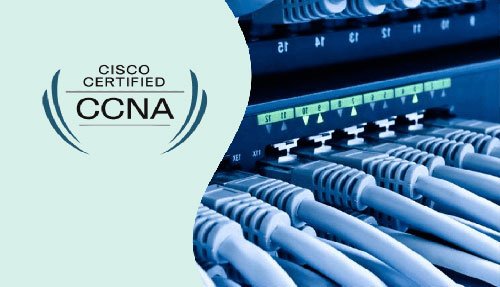Cisco Certified Network Associate (CCNA)
5,108 Students taken this course
Paper Code: 200-301

Duration
2 Months
Fee
PKR15000
Outlines
Fee
Outlines
Duration
Fee
Outlines
NOTE:
1. Above fee is applicable in class / Group study.
2. Fee package will be Different for one on one session & International Students.
About this Course
Cisco Certified Network Associate (CCNA) is the associate level Certification in Networking offered by Cisco. CCNA in Routing and Switching covers basics of Cisco Networking and routing switching technologies along with IP addressing schemes, routing basics, switching and WAN technologies. After completion of CCNA course, a candidate can easily install, configure and troubleshoot Cisco Routers and Switches for medium sized networks. After completion of CCNA R&S V3.0 200-301 Certification candidates can go for higher level of Cisco Courses like CCNP R&S and CCIE.
We are Best Institute for Cisco CCNA course Training in Pakistan. We provide CCNA course on real Cisco devices (Routers and Switches), with 24×7 Lab Facility. CCNA curriculum is designed as per CCNA Certification exam blueprints provided by Cisco.
Why Choose Us
- Gain fundamental skills and concepts
- Qualify for more roles
- Up-to-date curriculum
- Learn it all in one program
Modes of Trainings Available:
- Online Training
- One to One Training
- Regular and Weekend Training
Course Content
Sec. 1:
- Introduction to Network
- Introduction to OSI Modal
- Compare TCP/IP & OSI Modal
Sec. 2:
- Introduction to Topologies
- Compare and contrast Network Topologies
- Star
- Mesh
- Hybrid
- LAN, WAN intro.
Sec. 3:
- Select the appropriate cabling type based on implementation requirements.
Sec. 4:
- Introduction, configure, verify and troubleshoot IPV4 addressing & Subnetting.
- Compare and contrast IPV4 address types:
- Unicast
- Multicast
- Broadcast
Sec. 5:
- Describe the need for private IPV4 addressing:
Sec. 1:
- Describe and verify switching concepts
- Mac learning
- Mac address table
Sec. 2:
- Configure, verify & troubleshoot Vlans
- Access ports (data & voice)
- Default Vlan (Native)
- Configure, verify troubleshoot Interswitch connectivity
- Trunk ports
- Add & remove Vlans on a trunk
Sec. 3:
- Configure, verify and troubleshoot protocols
- STP mode (PVST + RPVST)
- STP root bridge selection
- Configure & and verify Layer’s Protocol
- Cisco discovery protocol
Sec. 1:
- Describe the Routing concepts
- Packet handling along the path through a network
- Forwarding decision based on route lookup
Sec. 2:
- Interpret the Components of Routing table
- Prefix
- Network Mask
- Next hop
- Metric
- Configure, verify, troubleshoot inter-Vlan routing
- Routing on a stick
- Compare and contrast static Routing and dynamic routing
- Describe dynamic routing protocols
- RIP
- EIGRP
- IGRP
- OSPF
Sec. 1:
- Introduction about WAN Technologies
- Configure, Verify and Troubleshoot PPPOE client side interfaces using local.
Sec. 1:
- Describe DNS look up operation
- Configure & verify DHCP on a Router
- Server
- Relay
- Client
- TFTP, and Gateway options
Sec. 2:
- Configure, Verify, and Troubleshoot inside source
- Static
- Pool
- PAT
Sec. 1:
- Configure, Verify and Troubleshoot Port Security
- Static
- Dynamic
- Mac address
- Configure, Verify and Troubleshoot basic device hardening
- Local Authentication
- Secure password
- Access to device
- Source address
- Telnet /SSH
- Login banner
Sec. 1:
- Configure and Verify device monitoring protocols
- SNMP
- Syslog